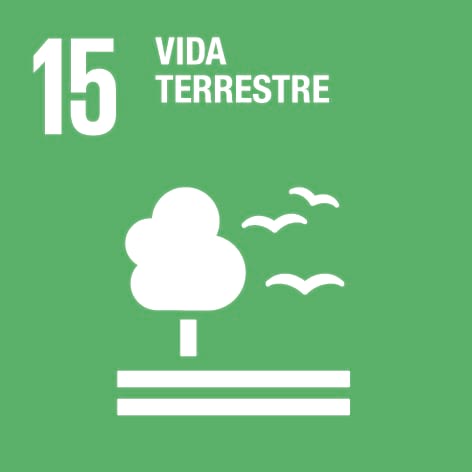The European Edufire Toolkit project for education about forest fire prevention enters its final stretch
The initiative aims to provide secondary school teachers with tools to educate students in forest fire preventionThe preliminary results of the project, in which the UOC is participating, were presented at a three-day conference in Sant Celoni and Barcelona

A conference on "creating networks through fire: experiences from research, practice and education" took place from 1 to 3 June in connection with the Edufire Toolkit project and the IN3 CareNet research group of the UOC (Universitat Oberta de Catalunya). With sessions in Sant Celoni and Barcelona, the event staged a presentation of the results of this initiative, which was funded through the European Commission's Erasmus+ programme. The project aims to educate secondary school students about preventing forest fires. It has been coordinated by the Pau Costa Foundation, and in addition to the UOC, the other partners are the School of Agriculture of the University of Lisbon and Leitrim County Council (Ireland). "From the outset, we worked on a coordinated basis to try to find an approach to the project and to the materials produced that could be useful in any European country, but at the same time could also be adapted to specific local conditions," explained Míriam Arenas, a researcher in the CareNet group at the IN3 at the UOC.
The project is currently in its dissemination phase, and as such, Arenas said they expect to "receive feedback from people outside the project, who help us improve the materials we've prepared". However, the project's educational materials are already at an advanced stage of development for both secondary school teachers and students, and are available on the project's website. Two pilot tests have already been carried out in Catalonia: one was organized by the Pau Costa Foundation in Taradell, in a more rural environment, and the other was undertaken by the UOC in partnership with the Josep Lluís Sert secondary school in Castelldefels. In this second test, it was possible to explore "the community dimension of the educational idea in a more urban environment", added Arenas.
The UOC researcher explained that these experiences were shared at the conference this June, and they were engaged in a dialogue with the first-hand community perspective, both with communities affected by large-scale forest fires and with various professionals who work in this field. “At the end of the project, the initiative will have provided secondary school teachers with a set of resources, tools, guidelines, recommendations and examples, created from multiple perspectives and disciplines. It'll be a tool for teachers who want to work on forest fires and climate change with students between 12 and 16 years old using a project-based learning approach," Arenas said.
This type of approach helps to make "students take the initiative – together with teachers and local communities – to undertake a research project based on their immediate environment, but which is informed by a scientific perspective on fires which has been validated at a European level", said the researcher. This is important taking into account that forest fires in Europe have common problems, but the environmental, economic, social and political situation differs depending on each specific territory. The pilot test in Castelldefels was conducted with Erasmus students from France, Portugal and Slovakia, the country where the Catalan students were doing their exchange just a few weeks ago. "This shows them the shared characteristics and the differences in this area," Arenas clarified.
The first of the conferences held in Sant Celoni and Barcelona also saw the presentation of the results of research on what have been termed fire territories - places that have suffered from large-scale forest fires, such as the Montseny region in 1994 and La Vall d'Ebo in 2015. The exchange of experiences is expected to create shared narratives between territories with a high fire risk, and lead to new local initiatives. The definition of a fire territory "is also a way to restore the positive connotations that fire has always had both in Mediterranean ecosystems, where native vegetation and fauna are adapted and need fire, and in the traditional cultures of those regions", explained Arenas. She added that "the aim is to get back to the idea that fire isn't necessarily negative in ecosystems, and that we have to move from a model that prioritized extinguishing to a model based on living with fire". In this model, fire "is more controlled by humans, either by means of preventive measures, such as extensive livestock farming, forestry activities, or controlled burning, and based on the assumption that fire may be necessary in certain times and under certain circumstances", concluded Arenas.
This research promotes Sustainable Development Goals (SDG) 4, Quality Education; 13, Climate Action, and 15, Life on Land.
UOC R&I
The UOC's research and innovation (R&I) is helping overcome pressing challenges faced by global societies in the 21st century by studying interactions between technology and human & social sciences with a specific focus on the network society, e-learning and e-health.
Over 500 researchers and more than 50 research groups work in the UOC's seven faculties, its eLearning Research programme and its two research centres: the Internet Interdisciplinary Institute (IN3) and the eHealth Center (eHC).
The university also develops online learning innovations at its eLearning Innovation Center (eLinC), as well as UOC community entrepreneurship and knowledge transfer via the Hubbik platform.
Open knowledge and the goals of the United Nations 2030 Agenda for Sustainable Development serve as strategic pillars for the UOC's teaching, research and innovation. More information: research.uoc.edu.
Press contact
-
Anna Sánchez-Juárez




